News
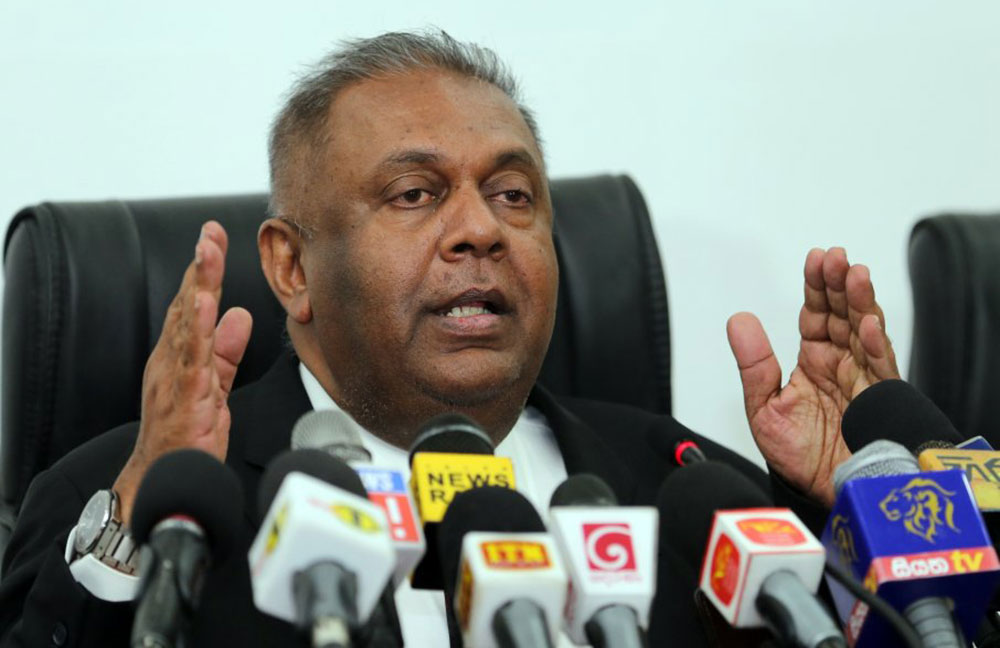
Oil prices should be reduced by Rs. 20 per litre: Mangala
Former Finance Minister Mangala Samaraweera said that if the fuel price formula introduced by the Good Governance Government had been implemented thus far, it would have been possible to reduce the prices of all types of fuel by at least Rs. 20 per litre from March 10, 2020.
During the ‘Yahapalana’ Government, fuel prices were revised on the 10th of every month in accordance with the fuel price formula to give maximum benefit to the consumers of Sri Lanka, comparing prices in the world market.
The then Finance Minister Mangala Samaraweera, when he introduced the fuel price formula, had promised to pass the benefit of world oil price fluctuations to the consumers by reducing the oil prices in the local market. Now the international oil price has come down to USD 45 per barrel from USD 65 when the fuel price was last revised in September 2019.
Likewise, the government had also introduced a price formula for another essential commodity, domestic gas. As a result, the price of a 12.5 kg gas cylinder sold for more than Rs. 2,000 in 2015 has been reduced to Rs. 1,500.
Accordingly, when the price of a barrel of Brent crude oil in the Singapore market was US $ 65, the price of oil has been revised last in September 2019 and the new prices by March 10, 2020 should be as follows.

"The poor people were also taken for a ride by promising a parcel of essential goods free of charge by President Gotabaya Rajapaksa," Samaraweera stated.
The former Finance Minister noted that when the government does not pass the benefit of fuel price reduction in the world market to the people in the country, it could be observed that this government is not doing anything to provide relief to the people.
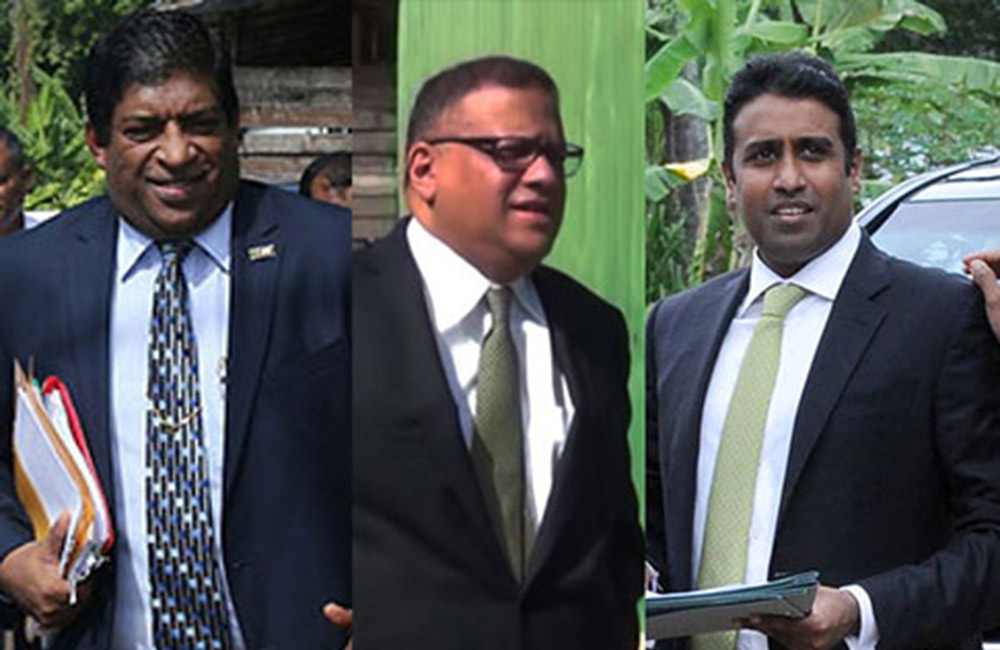
AG directs Acting IGP to arrest Ravi, Mahendran & Arjun
The Attorney General has directed the Acting IGP to obtain warrants to arrest former minister Ravi Karunanayake, former Governor of the Central Bank Arjun Mahendran, Arjun Aloysius, CEO of Perpetual Treasuries Kasun Palisena, former director of the Public Debt Department T. Sarathchandra and a few others today.
The Attorney General's Coordinating Secretary, State Counsel Nishara Jayaratne stated that the warrant has been issued for the arrest of the suspects on charges of conspiracy, criminal misappropriation, cheating and market manipulation with regard to the bond auction in March 2016.

SriLankan Airlines to lose USD 130 million
SriLankan Airlines will lose USD 130 million for the year ending March 2020, chairman Ashok Pathirage disclosed to the Parliamentary Committee On Public Enterprises (COPE). He requested a USD 300 million capital injection from the government to prevent a debt spiral.
Pathirage blamed the situation on the loss of tourism after last year's Easter Sunday bombings and the ongoing Covid-19 coronavirus outbreak. Arrivals from China, for example, which accounted for 30% of inbound travel in 2018, plunged 92.5% in February year-on-year.
Although undercapitalised due to past losses, the airline had been expecting to reduce its loss to about USD30 million in 2021, the chairman told the committee, promising that “the board has a plan where we are very confident the airline will be profitable two to three years down the line", he stated.
It was only last month that the government approved a further handout to SriLankan Airlines, this time for USD 50 million, to enable it to continue its services.
Loss-making since Emirates (EK, Dubai Int'l) concluded a profitable ten-year management contract with the carrier in 2008, SriLankan's cumulative losses will total LKR 232 billion rupees (USD1.27 billion) by end March 2020, Pathirage said, including USD 115 million to release it from a controversial Airbus deal. The carrier committed in 2013 to buy six A330-300s and four A350-900s and take a further four A350-900s from lessors but later reneged on its decision to add any of the A350s.
Sri Lanka's previous administration, which was in power until November 2019, decided in August of that year to sell a 49% stake in the flag carrier and try to attract foreign investors by assuming some of the airline's legacy debt. Nothing further was done, however.
Pathirage also reiterated earlier plans to launch flights to Frankfurt Int'l and Sydney Kingsford Smith and lease more A330s. According to the ch-aviation fleets advanced module, the carrier currently operates an all-leased fleet of five A320-200s, two A320-200neo, two A321-200s, four A321-200neo, six A330-200s, and seven A330-300s.
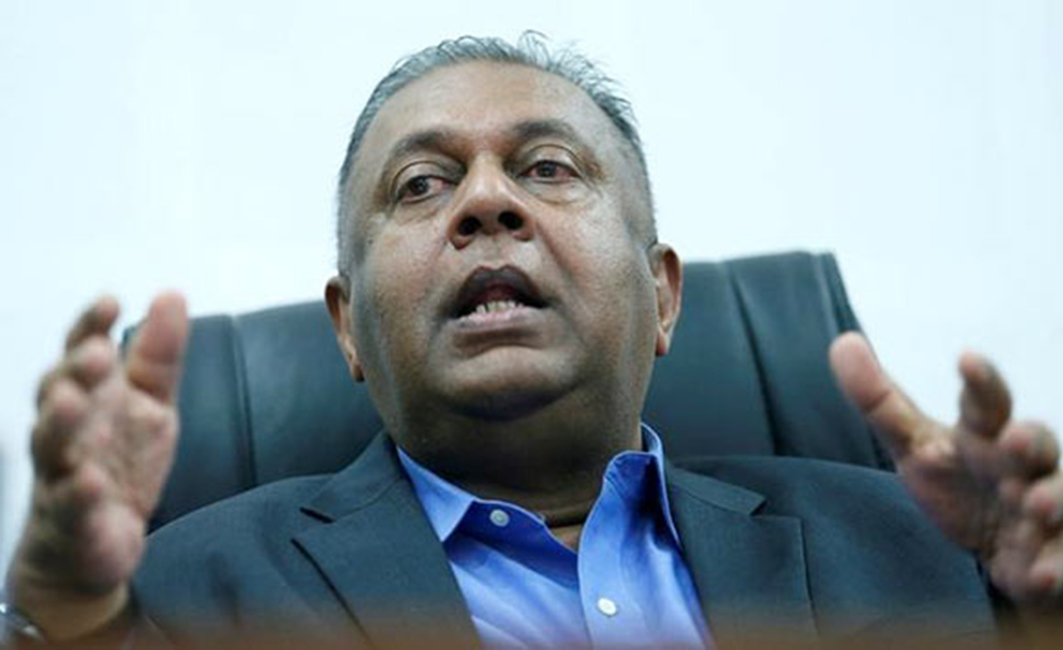
UNPers controlled by Rajapaksas working to divide the grand old party: Mangala
Samaraweera made these comments while speaking at the UNP Working Committee meeting held at the party headquarters 'Sirikotha' last night (01).
The parliamentarian observed that the formation of the new coalition was postponed due to minor issues for several months. At a time when the general election is scheduled to be announced in a few hours, the impediments to finalising the agreement have been the shameful actions of a few who are trying to divide the party and hand over an advantage to the incumbent government at their behest.
When MP Vajira Abeywardena had tried to interrupt, Mangala Samaraweera had said that "you are one of the conspirators."
Recalling the past where the SLFP had been in the opposition for 17 years from 1977 to 1994, Mangala Samaraweera had noted that the UNP would have to remain in the opposition for years if the party gets caught in such conspiracies. He had requested them to set aside other issues for the time being and focus on discussing matters related to the formation of the alliance immediately.
However, after the two sides had clashed over trivial matters, Samaraweera had walked out from the Working Committee meeting.
Sajith faction to contest from 'Samagi Jana Balawegaya'
However, the Working Committee meeting which was held yesterday ended without reaching consensus on a symbol and both parties had decided to contest separately.
The general secretary of the 'Samagi Jana Balawegaya' (SJB) Ranjith Madduma Bandara stated that the majority of UNP MPs have decided to contest the next general election under the SJB led by Sajith Premadasa.
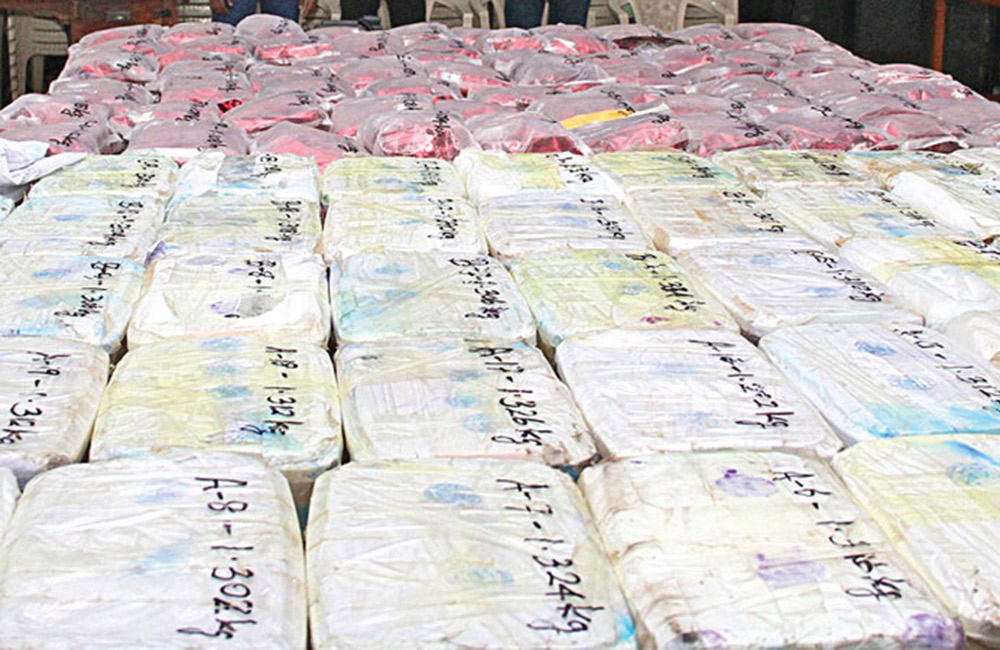
SL Navy, PNB nab drugs worth over LKR 6000 million in high seas
The Police Narcotics Burea and the Sri Lanka Navy in joint operation nabbed two foreign trawlers packed with over LKR 6000 million worth of heroin and crystal methamphetamine in Sri Lanka's biggest-ever drugs bust at sea, Navy spokesman said.
The vessels, as well as a Sri Lankan fishing boat, were Thursday escorted to a harbour near the capital Colombo.
Sixteen foreign crew and five Sri Lankan crewmen were detained for questioning, Sooriyabandara added. The nationalities of the foreigners were not disclosed by authorities.
"The two foreign vessels were trying to offload the drugs onto a Sri Lankan fishing boat," Sooriyabandara said.
The foreign vessels, which carried no registration, were intercepted in international waters some 1,100 kilometres (687 miles) from Sri Lanka's coast.
Sooriyabandara said investigators were checking GPS data on board the vessels to establish the route and the point of origin.
Authorities said initial investigations suggested the Iran-Pakistan coast was the point of origin.
In 2016, the navy arrested 10 Iranians, two Pakistanis and one each from India and Singapore for allegedly trying to smuggle 110 kilogrammes of heroin into the island nation via a trawler.
The country's previous largest drug haul was in December 2016 when police seized 800 kilogrammes of cocaine on a ship at Colombo's port from Saudi Arabia's King Abdullah port.
Six months earlier, authorities discovered 301 kilogrammes of cocaine inside a shipping container at Colombo.
Authorities believe the Indian Ocean island is also being used as a trafficking transit point.
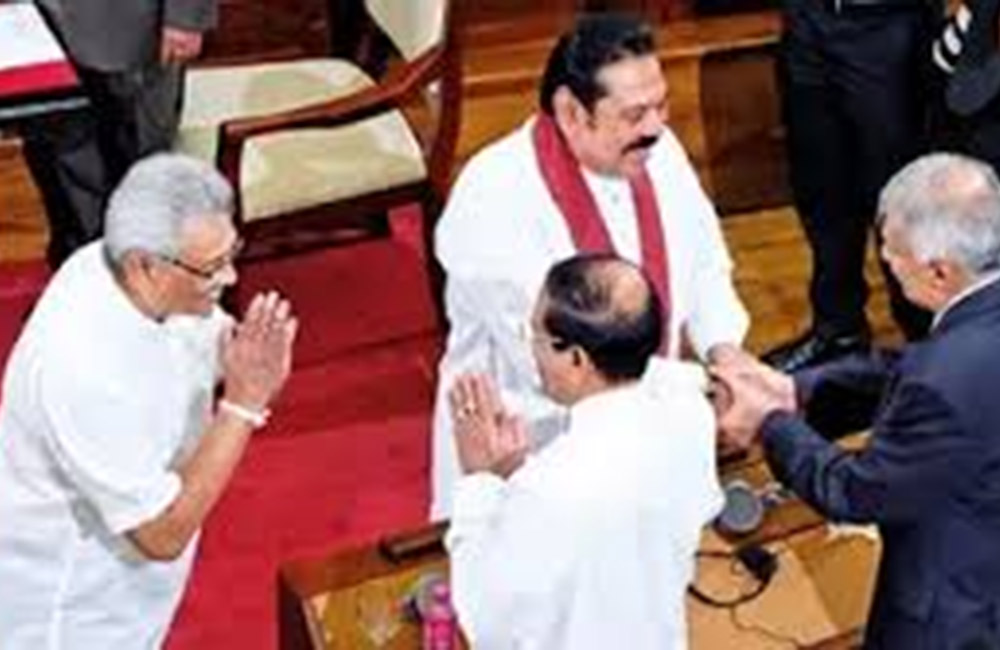
Will help President Gotabaya to form a strong Govt: Maithripala Sirisena
Former president and the Leader of the Sri Lanka Freedom Party (SLFP), Maithripala Sirisena says his party will extend its fullest support to strengthen the government of President Gotabhaya Rajapaksa at the next general election.
Accordingly, the SLFP will join hands with the Sri Lanka Freedom People's Alliance (Sri Lanka Nidahas Podujana Sandanaya) and contest the upcoming general elections under the 'pohottuwa' symbol. He said that the symbol of the party is irrelevant when fighting on behalf of the people in the country.
The former president made these comments while making the keynote speech at a workshop held for SLFP representatives in Polonnaruwa last Saturday (22).
Chairmen and members of Pradeshiya Sabhas as well as all other SLFP representatives in Polonnaruwa participated at this workshop.
SLFP Leader Maithripala Sirisena said that he is well aware of the challenges faced by the Gotabaya Rajapaksa government and observed that the payment of salaries to state sector workers have become a serious issue. He further said that the government also needs to settle a substantial amount in debts.
A strong Govt. can't be formed without the SLFP
Pointing out that it is funny to think that one could win the Polonnaruwa electorate without the support of the SLFP, the former president stressed on the need to unite and form a strong government at the general election.
While noting that the SLFP has launched a very systematic campaign, the former president said that he intends to strengthen the Gotabaya Rajapaksa government by working towards the victory of the most number of parliamentarians at the election.
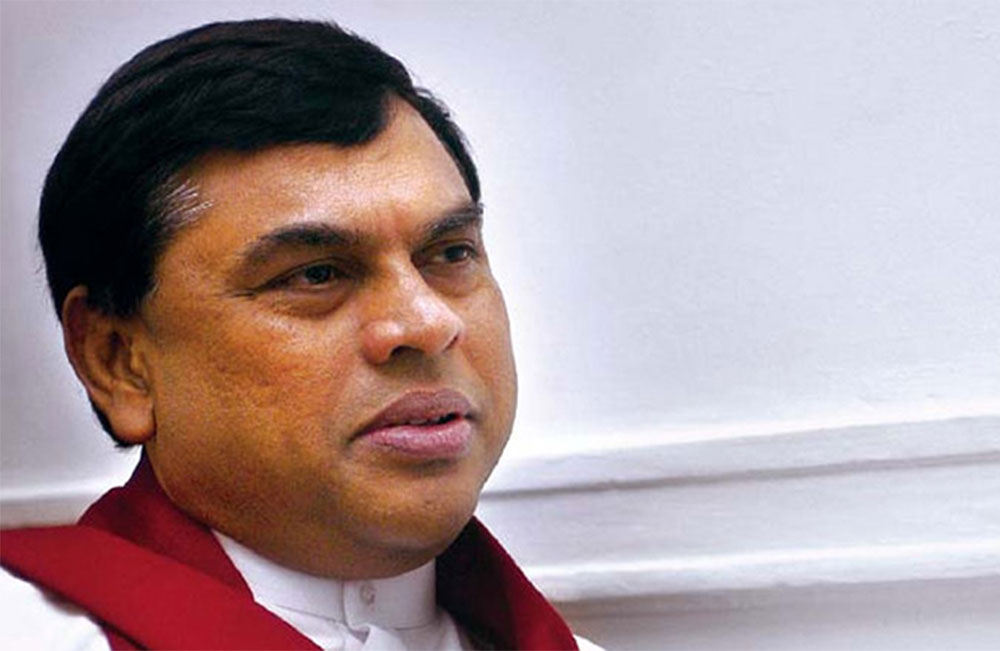
Basil confident of getting 113+
Despite being faced with many difficulties throughout its inception as a party and having emerged victorious in all elections since, the founder of the Sri Lanka Podujana Peramuna Basil Rajapaksa asserted that the SLPP will achieve a landslide victory at the upcoming general election.
He made these comments while addressing party representatives at the SLPP headquarters in Nelum Mawatha, Battaramulla.
He further stated that he expects to win the election by getting 113-120 seats.
He had also pointed out the importance of executing an eco-friendly election campaign while paying strict adherence to election laws and regulations.
Sri Lanka Nidahas Podujana Sandanaya to contest under SLPP!
SLPP General Secretary attorney-at-law Sagara Kariyawasam had officially informed the Election Commission on Tuesday (03) that the Sri Lanka Nidahas Podujana Sandanaya would contest under the Sri Lanka Podujana Peramuna (SLPP).
Attorney-at-law Sagara Kariyawasam made this notification as all political parties must inform the Election Commission of their intention to contest within seven days of the declaration of an election.
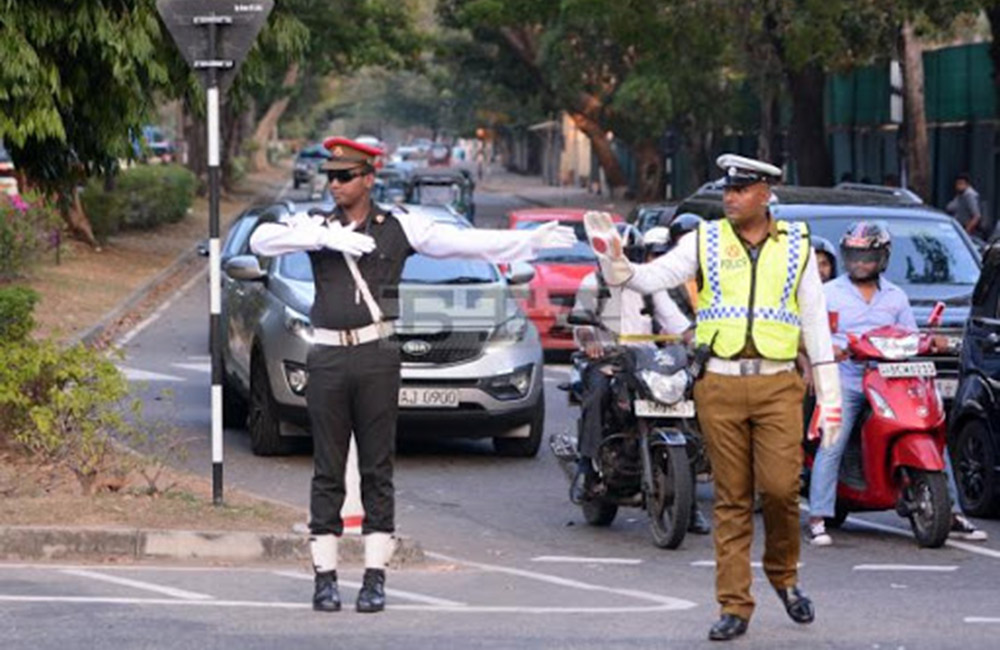
Govt. deploys troops to control traffic
The government has deployed troops to help police control worsening traffic congestion in the capital, the Army said Monday (Feb 24).
President Gotabaya Rajapaksa, a retired army officer, ordered the military to assist traffic officers at the main entry and exit points to Colombo, a city which nearly a million people enter or leave daily, a spokesman said.
The military police will also lend support "in any other area where their services are required", Army spokesman Chandana Wickremasinghe added.
Traffic slows to a snail's space in Colombo during the morning and evening rush hours making it one of the slowest road systems in South Asia.
Recent studies have shown average speeds drop below 7kmh in the morning and the evening.
The capital does not have a mass transit system, forcing many to use their own transport that chokes the narrow streets.
The former government began work on the country's first light rail transit system last year at an estimated cost of US$1.5 billion. The Japanese-funded project is expected to be operational within about five years.
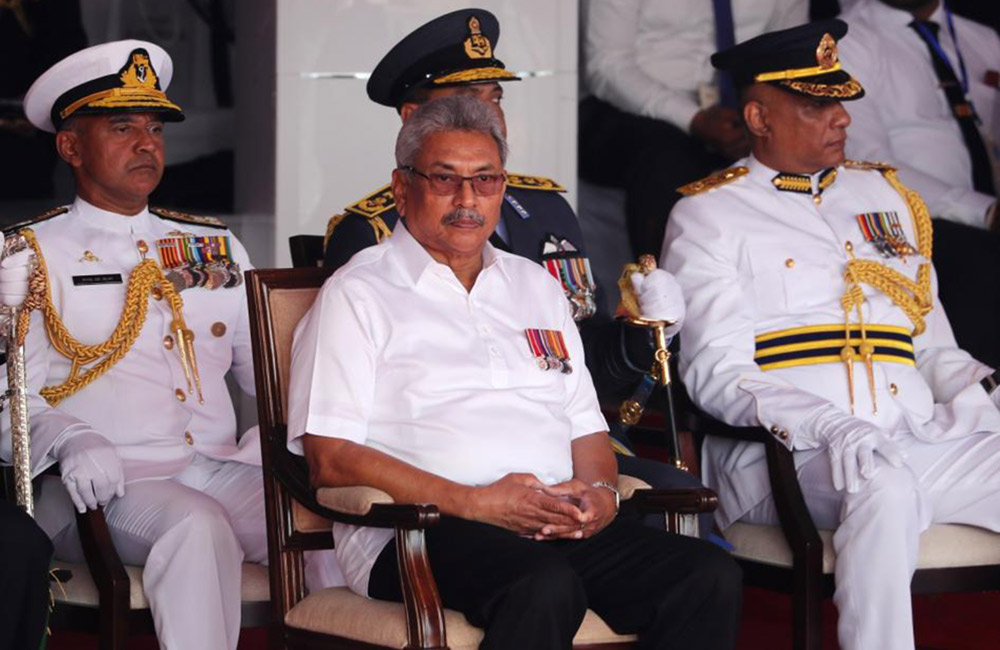
HRW accuses Rajapaksa Govt. of re-establishing a 'state of fear'
Security agencies are stepping up surveillance, harassment, and threats against human rights activists and journalists, Human Rights Watch (HRW) said today. Since November 2019, when the government of President Gotabaya Rajapaksa came into office, there has been a rapid closing of civic space and freedom of expression.
In interviews with 15 Sri Lankan human rights defenders working in different locations around the country, Human Rights Watch heard consistent accounts of increased surveillance and pressure from security agencies. Several said that intelligence officials had asked activists and victims about their advocacy plans ahead of the current United Nations Human Rights Council session, which began on February 24, 2020 in Geneva. “We fear that international lobbying and travel to Geneva may not happen in future because of this situation,” one activist said.
“Since the return of the Rajapaksas to power, a state of fear is being re-established in Sri Lanka,” said Meenakshi Ganguly, South Asia director. “The activities of the government’s security apparatus are evident in some violent attacks and public death threats against activists and journalists, but also in equally dangerous actions happening out of sight.”
Rajapaksa has placed a number of important civilian agencies under the Defence Ministry, including the civilian police and the NGO Secretariat, which regulates nongovernmental groups, among dozens of others. He has appointed a serving military officer as head of the civilian intelligence agency and a retired general, Kamal Gunaratne, who is accused of war crimes and crimes against humanity, as defense secretary.
Over the past three months, unidentified people have physically attacked journalists several times, and issued death threats against reporters perceived as critical of the government. Security officials have searched media offices. The Defence Ministry announced on January 24 that it had drafted a new cybersecurity law to prevent people from publishing “defamatory posts” on social media. The proposals have not yet been published.
Several human rights activists described receiving repeated phone calls from intelligence officers. Some of these calls have apparently been to tell activists that they are being watched at that moment. On other occasions the caller asks questions or issues threats or warnings.
One human rights defender said that “everything has shifted into a critical situation. After the election, military activities including monitoring and inquiries have increased. They are following us. That is a huge threat for human rights groups.” Another activist said: “We collected stories and documents. Now we’ve stopped everything. We did a lot of work. Now, zero.” A third activist said she so constantly feels under surveillance that intelligence officers “might even be in the next seat on the bus.”
Police and intelligence officers have sought to instil fear in rights groups by visiting their offices and demanding staff lists, home addresses, and other personal details. One activist said the authorities came to his office demanding this information, but then revealed that “they knew already everything. My personal details, they knew it. This is part of the intimidation.”
Many of these activists carry out research and advocacy on abduction, torture, murder, and enforced disappearance allegedly committed by security forces, including members of the intelligence agencies and the military, between 2005-2015 when Gotabaya Rajapaksa was defense secretary during the administration of his brother Mahinda Rajapaksa, who is now prime minister. During those years the United Nations found credible evidence that the Sri Lankan government was responsible for war crimes and crimes against humanity.
An activist whose group works on so-called “white van” abductions and enforced disappearances allegedly committed by intelligence officers under the previous Rajapaksa administration said, “It is in question what will happen to me and my staff.” Another activist said, “I am even more scared because the kind of inquiry that has been happening is about people’s families, so that is even more frightening than if they are asking about our official activities.”
The intelligence agencies have also begun to target the financial and administrative records of nongovernmental organizations over the last five years, and especially details of funding from donors abroad. Activists fear the authorities will allege accounting errors as a pretext to shut them down or to bring criminal charges.
Several human rights groups based in eastern Sri Lanka have been summoned for questioning in Colombo by the police Terrorist Investigation Department (TID). One human rights activist said: “In the investigation they told us, ‘You have used money you received from abroad for terrorist activities in Sri Lanka. You are involved in terrorist activities, that is why you have been called for investigation.’”
On February 26, the Rajapaksa government said it would no longer abide by Human Rights Council resolution 30/1, which Sri Lanka endorsed in 2015. Resolution 30/1 commits Sri Lanka to ensuring truth and justice for past abuses. An activist said that Sri Lankan human rights groups that worked in support of Resolution 30/1 now find themselves vulnerable: “Now the government is saying you are urging the people to disturb the peace [by supporting resolution 30/1]. They say, ‘You have no right to do it.’”
Members of the Human Rights Council should, as a matter of priority, support a new resolution to establish an international mechanism or tribunal to address past crimes in Sri Lanka, Human Rights Watch said.
On February 14, the United States banned Sri Lanka’s army chief, Gen. Shavendra Silva, from travel to the US due to “his involvement, through command responsibility, in gross violations of human rights, namely extrajudicial killings” during Sri Lanka’s civil war. Other countries, including EU members and the United Kingdom, should follow suit and impose sanctions on him and others credibly accused of serious rights violations and war crimes.
The EU should also remind Sri Lanka of its human rights obligations under the European Union’s GSP+ system of trade preferences and of the consequences of failing to comply.
“Sri Lankans are seeing their civil and political rights being stripped away and replaced by authoritarian structures at a rapid pace,” Ganguly said. “It’s crucial for the UN Human Rights Council to remember the past, respond to the warning signs, and resolutely insist on fundamental human rights principles, including delivering justice to victims.”
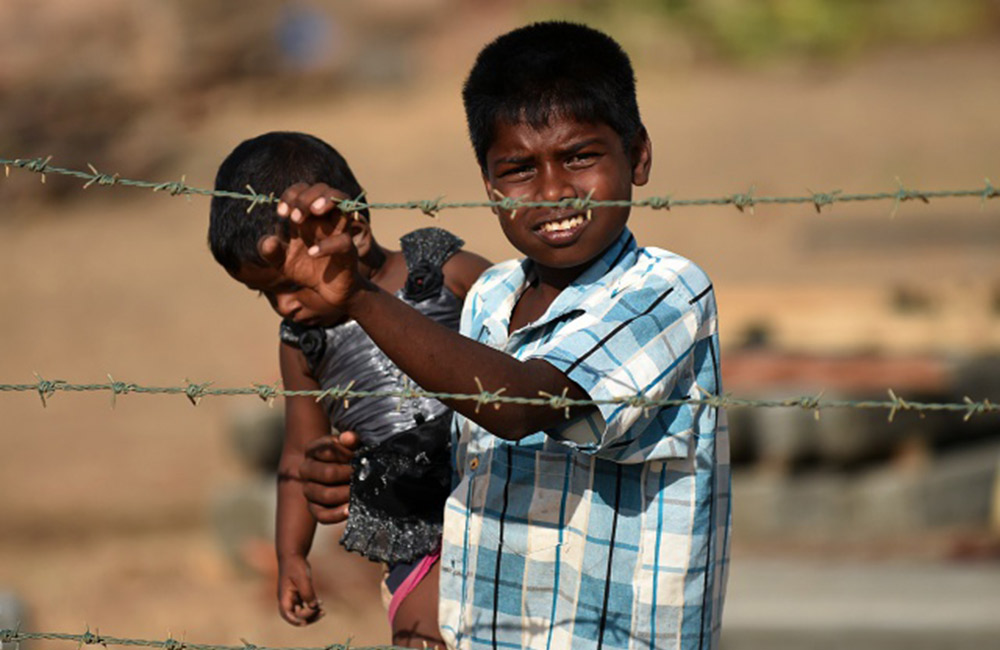
Government must spell out an alternate roadmap for reconciliation
The National Peace Council says that the travel restrictions imposed on Army chief Lt Gen Shavendra Silva is a continuation of a regime of international sanctions against Sri Lanka on the grounds of its unwillingness to deal with unresolved issues of the final phases of the war.
Following the announcement of the government's decision to withdraw from co-sponsorship of UNHRC Resolution 30/1, the National Peace Council (NPC) called on the government to demonstrate its continuing commitment to national reconciliation by spelling out its alternative roadmap which will address the concerns of all Sri Lankans.
In a statement, they point out that in September last year, the United Nations (UN) suspended Sri Lankan Army deployments in its peacekeeping operations after then President Maithripala Sirisena appointed General Silva as Army Commander accusing him of command responsibility for serious human rights violations.
"The decision of the US is argued to be on the basis of information found in UN and other reports available as far back as 2014. In October 2015, the Sri Lanka government agreed to address these concerns by co-sponsoring UNHRC resolution 30/1 which set out a roadmap to reconciliation.
On the other hand, the withdrawal of the US from the UNHRC in 2018 was seen as debilitating those commitments. It needs to be noted that the sanctions are being implemented only after there are indications of backsliding from governmental commitments made in the 2015-19 period. With Prime Minister Mahinda Rajapaksa’s announcement of the government decision to withdraw from Sri Lanka’s co-sponsorship of the UNHRC resolution, the National Peace Council (NPC) is concerned about further sanctions that could potentially be injurious to the country," the NPC said.
The National Peace Council said that the appropriate path for Sri Lanka to take at the present time would be that of restorative justice where the state would acknowledge the human rights violations and crimes of the past that occurred on all sides and focus its priority attention to restore the lives of those who survived to the maximum level possible.
Sri Lanka's Permanent Representative to the UN, Kshenuka Senewiratne, recently said "Sri Lanka is committed to find innovative and pragmatic solutions driven by the domestic context to protect the country’s national interest guided by the provisions of the Constitution, and the will of the citizens expressed through democratic means." Therefore, the Sri Lankan government should now demonstrate its continuing committement to national reconciliation through an alternative roadmap which will address the concerns of all citizens.
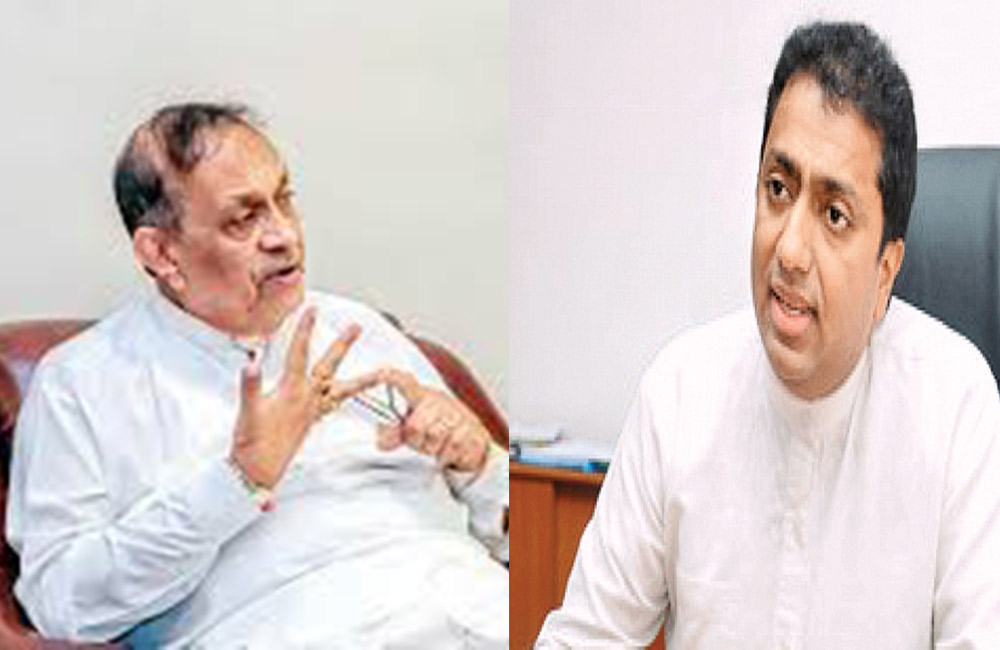
Akila to relinquish post: Karu to be UNP Leader?
Ranjith Madduma Bandara had intimated that they are willing to work together if Karu Jayasuriya is named as the Leader of the party.
Meanwhile, he had officially notified the Elections Commission yesterday (03) that they will contest the upcoming election under the 'Samagi Jana Balawegaya' led by Sajith Premadasa
Further, sources from the SJB said that they will announce the 'telephone', which is already registered under the party, as its symbol for the general election.
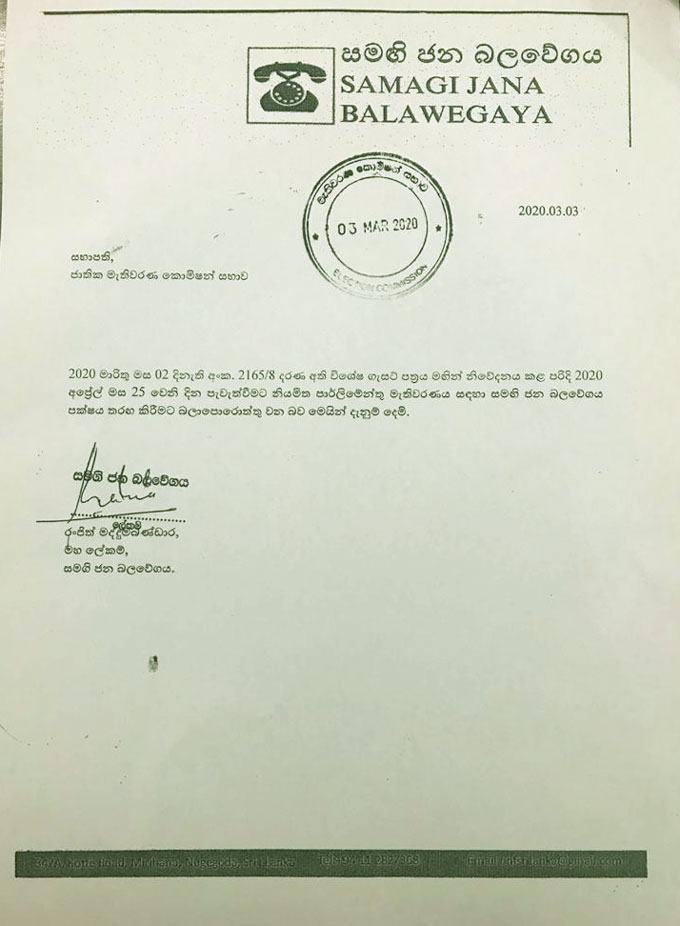
UNP Leader Ranil Wickremesinghe, who has decided to contest under the 'elephant' symbol for the upcoming general election, has directed UNP General Secretary Akila Viraj Kariyawasam to finalise the nomination list immediately.
Mediation by Mangala, Malik & Rajitha unsuccessful!
Former Ministers Mangala Samaraweera and Malik Samarawickrama, in an effort to resolve issues centered on the 'symbol' between the Ranil faction and the Sajith faction, had met both Ranil Wickremesinghe and Sajith Premadasa separately, yesterday. However, those discussions have been unsuccessful as they could not come to an agreement.
Meanwhile, Ranil Wickremesinghe has appointed former MP Rajitha Senaratne as a mediator to resolve these issues.
Accordingly, Senaratne met the Leader of the 'Samagi Jana Balawegaya' Sajith Premadasa yesterday (03) and a second round of discussions are scheduled to be held with senior members of the UNP today.
No possibility of joining whatsoever - Naveen
In this backdrop, former parliamentarian Naveen Dissanayake has said that the UNP cannot join the SJB under prevailing legal conditions.
However, former parliamentarian Lakshman Seneviratne observed that it would be immensely disadvantageous to the UNP if they decide to contest the election alone.
Akila vacates the post of General Secretary
Meanwhile, it is reported that UNP General Secretary Akila Viraj Kariyawasam is prepared to relinquish his post to consolidate the unity within the party.
This was revealed during a discussion yesterday (03), party sources said.
Sri Lanka Nidahas Podujana Sandanaya to contest from SLPP
Meanwhile, the Sri Lanka Nidahas Podujana Sandanaya which consist of a coalition of parties led by the Sri Lanka Freedom Party (SLFP) and the Sri Lanka Poudjana Peramuna (SLPP), has officially informed the Election Commission that they will contest the forthcoming general election under the SLPP. They will contest under the 'Pohottuwa' symbol.
All political parties must inform the Election Commission of their intention to contest within seven days of the declaration of an election.
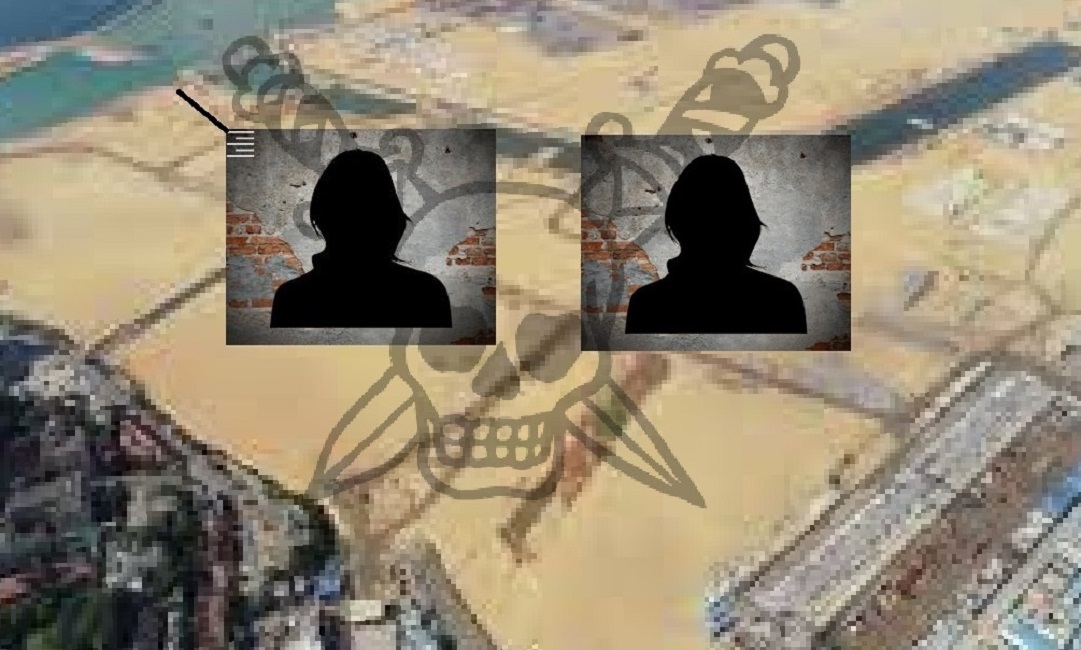
Port City Project: Allegations against officials for concealing shortcomings of Chinese company
According to sources from the Presidential Secretariat, Bimal Gonaduwa, who was appointed as the Project Director of the Colombo Port City Project by the Urban Development Authority (UDA) is being sidelined by the Chinese company in charge of construction while according preferential treatment to Deputy Project Director Piyusha Gunasekara.
It is also alleged that the Chinese company is taking a special interest in her because she is known to represent the interests of the Chinese company rather than the interests of the Sri Lankan government.
Nihal and Piyusha dancing to the Chinese company's tune!
After the incumbent Rajapaksa government came to power, Nihal Fernando, the then director of the Port City Project, was removed and Bimal Gonaduwa was appointed. It is said that his removal had to do with the fact that Nihal Fernando was revealed to be a pawn of the Chinese company.
At the time Nihal Fernando was sacked, the Mangaing Director of the company that is handling the construction of the Port City Project, Houliang Jiang, had made an effort to recruit him as a consultant to the Chinese company, but the government had refused.
According to Presidential Secretariat sources, Deputy Director of the Port City Project, Piyusha Gunasekara and Additional Secretary of the Ministry of Urban Development, Anjali Devaraja have also provided preferntial treatment to the Chinese company with the support of a high ranking official of the ministry.
Furthermore, Anjali Devaraja, who was a close associate of former minister Champika Ranawaka, had joined the ministry during the good governance regime and worked as a close associate of the minister. However, it is reported that she is now criticising the former minister and has distanced herself from the former minister and appears to be a close friend of the Rajapaksa government. An engineer by profession, she was a contemporary of Champika Ranawaka during their university days.
It has been reported to the Presidential Secretariat that the two female officials have been tactfully relieving the current Project Director from his responsibilities.
It is also reported to the theleader.lk that certain officials from the Urban Development Authority and the Ministry, have been concealing who have been supportive of the Chinese company, are concealing shortcomings of the company with regard to land reclamation and construction.
Page 411 of 663